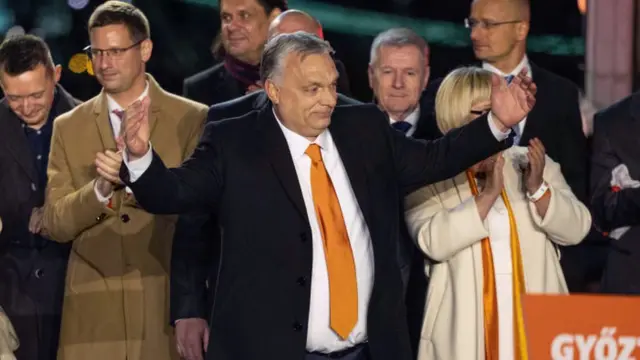Viktor Orbán, Ukraine, and the Russian Oil Loophole: A Complex Alliance in the Heart of Europe
Hungarian Prime Minister Viktor Orbán has been at the center of European politics for years, particularly for his controversial stance on various issues such as migration, energy, and relations with Russia. One of the most intriguing developments in recent months is Hungary’s continued access to Russian oil, despite EU sanctions. This situation has raised eyebrows as Ukraine, which is actively fighting Russian aggression, indirectly supports a loophole that allows Hungary to benefit from discounted Russian oil.
Hungary’s Reliance on Russian Oil
Hungary has long depended on Russian energy supplies, particularly oil and gas, to fuel its economy. One of Orbán’s key strategies has been to secure discounted Russian oil, helping to keep domestic fuel prices low. In the context of rising global energy prices and sanctions imposed by the EU on Russia following the Ukraine invasion, Hungary managed to secure an exemption that allows it to continue importing Russian pipeline oil through the Druzhba pipeline(POLITICO).
This arrangement has been highly beneficial for Hungary, with Russian oil being sold to Hungary at a significant discount compared to non-Russian oil. Since the imposition of sanctions, the price difference per barrel has fluctuated between $5 and $30, helping Hungary cushion its economy amidst global energy price hikes(POLITICO).
Ukraine’s Role in the Loophole
Despite the fact that Ukraine is fighting a war against Russia and has imposed its own sanctions on Russian energy companies like Lukoil, the oil flow to Hungary continues. The loophole exists because other Russian oil producers are still allowed to send crude across Ukraine, bypassing direct sanctions(POLITICO).
This has allowed Hungary to maintain its vital energy imports without suffering the full brunt of EU sanctions on Russia.
This situation reflects a complex web of economic and political interests. While Ukraine has sanctioned specific Russian energy firms, the continuation of oil supplies through intermediaries has kept Hungary’s energy supply relatively stable. Some analysts suggest that Ukraine tolerates this arrangement to avoid alienating Hungary, a key EU member state, despite growing tensions between the two countries over Hungary’s pro-Russian stance.
The Political Tightrope for Orbán
Viktor Orbán has justified his country’s close ties with Russia as an economic necessity. Hungary’s reliance on Russian oil has helped the country maintain low fuel prices and keep inflation somewhat under control, despite a 17.5% inflation rate in 2023(POLITICO)(euronews).
For Orbán, these energy subsidies are crucial to maintaining public support, especially as his populist government comes under increasing pressure from both domestic opposition and the European Union.
Orbán’s stance on Russia is, however, causing friction within the EU. His government has repeatedly clashed with Brussels over issues ranging from migration to foreign policy. Hungary’s pro-Russian stance has led to frozen EU funds and strained relations with European leaders who are pushing for a more unified stance against Moscow(The Independent).
Migration Tensions and the EU
In parallel to the energy issue, Orbán’s government continues to battle the EU on migration. The Hungarian Prime Minister has been one of the most vocal opponents of EU-wide asylum policies, often framing Hungary as a protector of Europe’s Christian identity. Viktor Orbán. In a bold move, the Hungarian government recently proposed offering one-way bus rides to Brussels for asylum seekers, sending a direct message to EU leaders about Hungary’s resistance to taking in migrants(The Independent).
This provocative action mirrors earlier tactics employed by far-right politicians in other parts of the world and reflects Hungary’s defiance in the face of EU sanctions and court rulings. In fact, Hungary missed a key September 2024 deadline to pay a €200 million fine imposed by the European Court of Justice for violating EU asylum rules. This further escalates tensions between Hungary and the EU, setting the stage for more legal and political battles in the near future.
Orbán’s Challenges Ahead
The coming months are likely to be crucial for Viktor Orbán and his government. With increasing pressure from both domestic opposition and European leaders, Orbán’s balancing act between his domestic needs and international relations is becoming more precarious. Economically, Hungary may soon face higher energy costs if it loses access to discounted Russian oil, which has been vital to keeping the Hungarian economy afloat(POLITICO). Politically, Orbán’s defiance of EU migration policies could deepen the rift between Budapest and Brussels, potentially jeopardizing Hungary’s future within the bloc.
Orbán’s political longevity has often been attributed to his ability to navigate complex international dynamics while maintaining domestic support. However, as opposition movements grow and EU patience wears thin, his political future may face more significant challenges than ever before.
And in the end viktor Orbán
Viktor Orbán’s reliance on Russian oil and his government’s continued clashes with the EU paint a complex picture of modern-day Hungary. While Hungary benefits from loopholes that allow it to continue importing discounted Russian oil, this arrangement may not last indefinitely. At the same time, viktor Orbán’s anti-immigrant policies and defiance of EU rules have alienated his government from much of Europe, leading to escalating tensions. As Hungary faces both economic and political challenges, the future of Orbán’s leadership—and his country’s position within the European Union—remains uncertain.
Read more articles here
